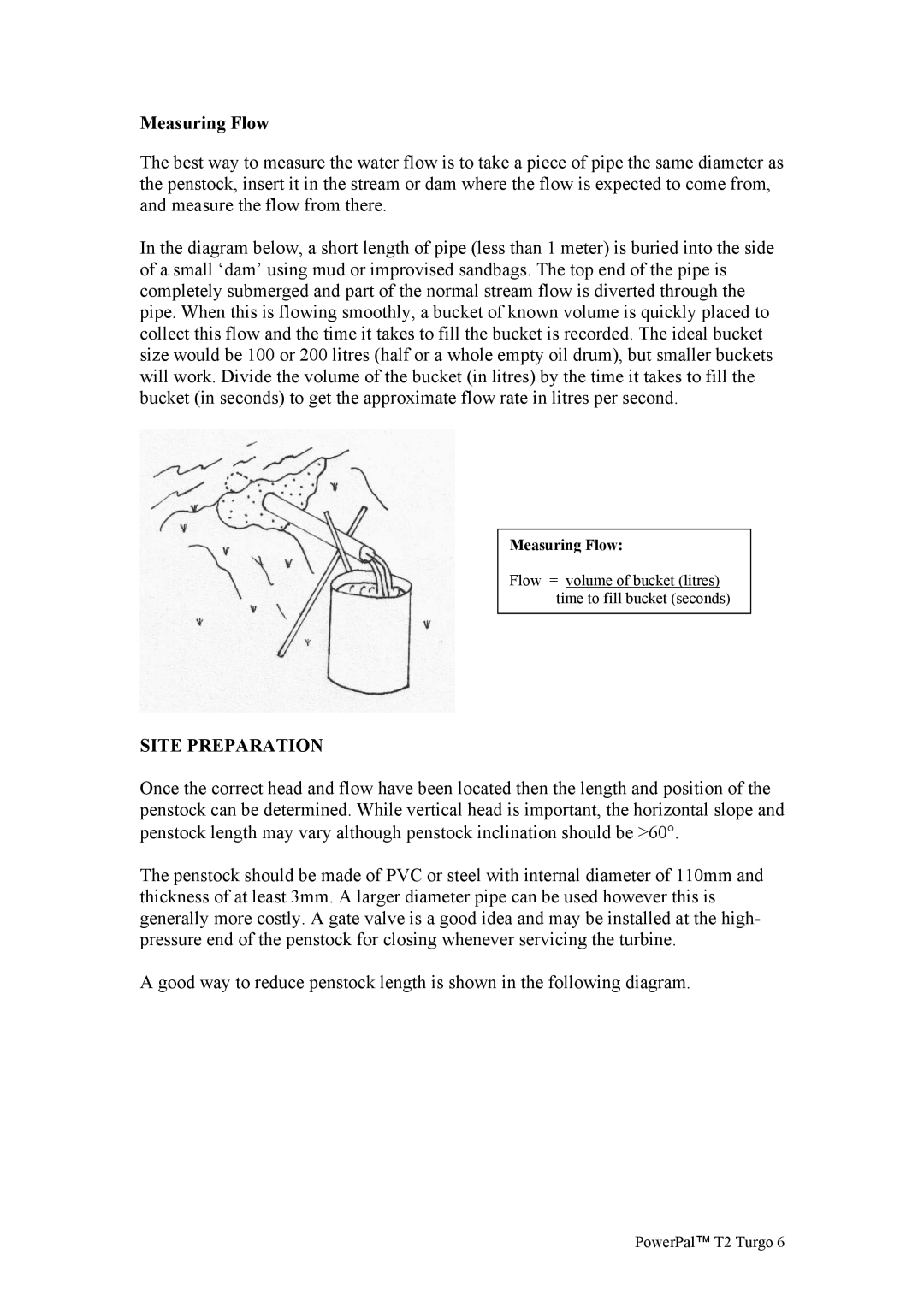
Measuring Flow
The best way to measure the water flow is to take a piece of pipe the same diameter as the penstock, insert it in the stream or dam where the flow is expected to come from, and measure the flow from there.
In the diagram below, a short length of pipe (less than 1 meter) is buried into the side of a small ‘dam’ using mud or improvised sandbags. The top end of the pipe is completely submerged and part of the normal stream flow is diverted through the pipe. When this is flowing smoothly, a bucket of known volume is quickly placed to collect this flow and the time it takes to fill the bucket is recorded. The ideal bucket size would be 100 or 200 litres (half or a whole empty oil drum), but smaller buckets will work. Divide the volume of the bucket (in litres) by the time it takes to fill the bucket (in seconds) to get the approximate flow rate in litres per second.
Measuring Flow:
Flow = volume of bucket (litres) time to fill bucket (seconds)
SITE PREPARATION
Once the correct head and flow have been located then the length and position of the penstock can be determined. While vertical head is important, the horizontal slope and penstock length may vary although penstock inclination should be >60°.
The penstock should be made of PVC or steel with internal diameter of 110mm and thickness of at least 3mm. A larger diameter pipe can be used however this is generally more costly. A gate valve is a good idea and may be installed at the high- pressure end of the penstock for closing whenever servicing the turbine.
A good way to reduce penstock length is shown in the following diagram.
PowerPal™ T2 Turgo 6
